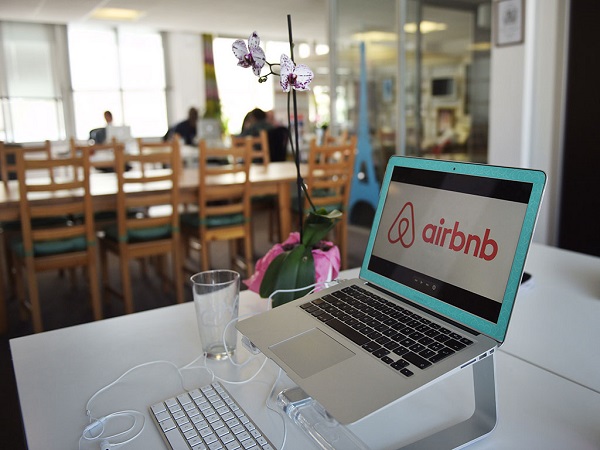
Difficult path to preventing Airbnb lets
Airbnb alone booked more than 80 million room nights in 2015 up from 40 million in 2014 and by the end of the year this will be a vastly higher figure.
More than 100 million people worldwide have used Airbnb since the site was launched in 2008. These figures don’t include those that booked with HomeAway, Expedia’s Stayz, homestay and TripAdvisor’s FlipKey plus many other lesser knowns. Two Australia-based start-ups, Aura and Travelling Frogs, were added to the list this year.
The success of the sharing economy, especially Airbnb – a company now worth $25 billion – is an unstoppable tsunami causing massive headaches for city authorities around the globe as they try to ban (Berlin tried and failed), regulate, control and tax the $5 billion-dollar-a-year tide.
Airbnb has over two million listings in more than 34,000 cities and in 190 countries around the world. There are over 75,000 Airbnb listings in Australia alone. And there are more Airbnb listings and users in Sydney than there are in San Francisco, making it fifth on the list of top ten users and eighth on the list of top ten listings globally.
On average, Airbnb hosts in Sydney earn $5400 a year
Not all Sydneysiders are happy about this.
Apartment buildings in NSW could be forced to accept short-term lets whether they want them or not under proposals being formulated by a parliamentary inquiry. And protections for owners who don’t want holiday lets have been largely ignored by City of Sydney’s submissions to the inquiry.
The proposed laws would mean that building and unit owners may not be able to ban short-term letting in their buildings. Currently, apartment blocks in NSW can ban short-term lets by passing by-laws that confirm the block’s adherence to their development approvals and zoning, using the definition of ‘residential’ lets as being nothing less than 30 days. But Section 49(1) of the Strata Schemes Management Act 1996 (NSW) also provides that a by-law must not prohibit a lease of a lot.
The NSW Owners Corporation Network has proposed that the strata law be amended to make clear that an owners corporation can regulate short-term lettings. It also supports a licensing system for hosts.
[The NSW Parliamentary Committee on Environment and Planning’s inquiry on the Adequacy of the Regulation of Short-term Holiday Letting in New South Wales was due to report around the time this report was written.]As states other than Queensland grapple with similar legislation, it appears to become ever more complex. A new Victorian law is due to come in later this year that allows short-stay letting in strata schemes but has provisions for suing hosts and their guests for damages, including disruptive behaviour.
In Queensland, short-term accommodation through an online service is largely unregulated so bodies corporate or unit owners may find it difficult to prevent such letting activities. Where the property is a lot in a community titles scheme, there is currently no requirement to obtain the body corporate’s consent to let the property on a short term basis
Chris Irons, commissioner for Body Corporate and Community Management, stresses: “It is important to point out that section 180 of the Body Corporate & Community Management Act 1997 sets out the limitations for by-laws. One of these is: ‘If a lot may lawfully be used for residential purposes, the by-laws cannot restrict the type of residential use’.”
The BCCM Act does not give a definition of the term ‘residential use’ but individual councils may do.
One possible way of management rights owners preventing sub-letting of units to sharing websites is to invoke any restriction clauses preventing any other person from operating a letting agent’s business within the scheme. Many management rights contracts have such clauses to prevent realty businesses muscling in on unit letting within a complex. However, it would be prudent for MR owners to seek legal opinion on the wording of their contracts to ensure they would not be in breach of some other aspect or regulation.
Where a unit owner decides to let their lot out through an online letting service, it would negatively affect the value of the management rights business.
As part of Gold Coast City Council’s enforcement of party houses, most Airbnb hosts must now apply for development permits to be able to rent out their properties legally. And it will cost $8086 to rent out a dwelling under changes to the city plan in February. In the past 12 months, Airbnb has close to doubled its Gold Coast portfolio to around 2000. Airbnb Australia country manager Sam McDonagh said the Gold Coast City Council had gone too far with its changes to the city plan in “burdening everyday folks with red tape and a clunky approvals process”. The cost of a material change of use (application) for short-term accommodation is $8086 for 10 or less units. Independent Retirees Association Gold Coast branch president Robert Grover said the move was another hit to seniors, many of whom he suspected rented out their properties on a short-term basis to supplement their income. “The cost of living is going up all the time. At the moment, retirees are facing a decreasing income and ever-escalating increasing costs,” he said. “Council has investigated six complaints specifically relating to Airbnb uses and many more relating to other short-term accommodation uses,” a GCCC spokeswoman said. “Complaints of this nature are investigated on a case-by-case basis to ensure the correct use category under the city plan is determined and action taken where a development of-fence is identified. “Under the city plan, Airbnb uses are generally characterised as short-term accommodation. Such uses are generally assessable development, which requires a development permit.”Issues that apply to independent home owners using Airbnb like insurance, safety, damage and behaviour apply also to strata title with the additional issues of parking, noise, fire escape/evacuation knowledge and understanding of by-laws plus the probable additional extra wear-and-tear maintenance costs in common areas like lifts, pools, gyms, etc. Under section 180(6) of the BCCM Act, a body corporate cannot impose a fee structure via the by-laws to make owners who let their property on a short-term basis pay the extra expenses incurred for common property maintenance
According to new research conducted by Queensland body corporate company Archers the Strata Professionals, one in three Queensland strata residents are concerned about apartment security from Airbnb guests.
Archers the Strata Professionals partner Grant Mifsud maintains, “The research demonstrates some residents feel their safe, private apartment buildings are being infiltrated by a steady stream of unknown visitors, who stay for short periods of time.
“Consequently, a number of strata residents are becoming uneasy about apartment security. In Queensland, a body corporate doesn’t have much authority to regulate against the use of lots for private short-term letting.
“We’re seeing the greatest impact in small schemes with permanent residents and no building manager. In those types of buildings, dealing with unplanned impacts such as increased noise, overuse of shared facilities, damage to common property and safety and security issues can be very time consuming for the volunteer committee members, and very expensive for body corporate as a whole.”
Don’t expect any help from upcoming legislation to assist in control of the sharing websites in strata title complexes.
A recent study by the Commercial and Property Law Research Centre of the Queensland University of Technology (which is undertaking a review of Queensland’s property laws for the Queensland government) called Body corporate governance issues: By-laws, debt recovery and scheme termination concentrated on by-laws that focused more on overcrowding.
The Grattan Institute also released a review in April entitled Peer-to-peer pressure Policy for the sharing economy but seems to focus on controlling disruptions and protecting amenities rather than to regulate permitting short stay rentals. These are just a couple of the myriad of reports and recommendations that governments will be faced with in drafting new legislation in the coming months. How much will be taken on board is not likely to be great, given past experience.
Like the rest of the world, the accommodation industry may need to just embrace the sharing economy and find ways of beating it rather than trying to ban it.

AccomNews is not affiliated with any government agency, body or political party. We are an independently owned, family-operated magazine.







Graham, as ever an incisive and well researched article, though the successful ban by New York State last Friday highlights that the tide is turning for the short-term accommodation ‘disruptors’. This will embolden many city and country jurisdictions to introduce similar legislation. Even in Australia, the national conversation about housing affordability and availability will make administrators wonder whether supporting the conversion of long-term rentals into opportunistic short-term greed is good, and with these unregulated short-term lettings now exceeding over 50,000 in Australia, that’s a lot of properties to be taken off the long-term rental market.
It is important for people to stop referring to these disruptors as “sharers” because while it may have started as a sharing business, it is now largely – over 60% – about full houses or apartments, in other words no sharing at all. And increasingly, the market is being taken over by commercial property investors with multiple apartments. Why should Governments protect commercial landlords just out to make a quick buck without meeting the regulatory obligations when it requires B&Bs, motels and hotels to jump through regulatory hoops? Our industry is one of the few growth sectors in the economy so we really should be able to attract greater support for our point of view.
TAA has no issue with genuine sharing…governments can offer “light” regulation for the Aunt Dorothies making pocket money out of their spare room, but we will stand up for accommodation operators and fight against commercial exploitation. The New York decision shows that the potential is there to achieve sensible and proportionate regulation, we just need to approach it the right way.
I so agree with Peter Hook here.
AirBnB does not need to be banned, but it does need to be regulated and offer operators a fair playing field. Small accommodation providers of the B&B industry are suffering in particular as AirBnB hosts offer similar accommodation at the same or lower rates. The AirBnB hosts do not pay commercial council rates or pay for mandatory pest control, fire safety inspections,, have enough off the road car parking or proper insurance. AirBnB grinds away at neighborhoods amenities with streets with no permanent residents in our town.
The excuse that “every day folk are burdened…” doesn’t add up when you find out that some AirBnB hosts own several properties and offer accommodation on a commercial scale. When AirBnB starts looking for so-called “Super Hosts” who will be looking after several properties for the owners you really have to start asking whether it really is just some people renting out an extra room in their family home.
The average earnings of a few thousands dollars show skewed statistics as there are probably many people (the ones that try to rent out a spare room is my guess) who don’t make a whole lot of money. To give numbers like that you really need to also talk about the whole range of earnings and show the graph with the error bars.
This B&B host is lying awake at night, because 16 years of hard work and dealing with Council and all kinds of regulations we have to abide by is not paying off. We weren’t even allowed to built a proper Manager’s Residence because with a legal, approved B&B you weren’t allowed to have Dual Occupancy on our hectare of property. Meanwhile people in town who are allowed to built an granny flat without a DA (but with complying development) to provide affordable housing is now renting this ‘studio’ out at on AirBnB because you can make many times the amount of money.